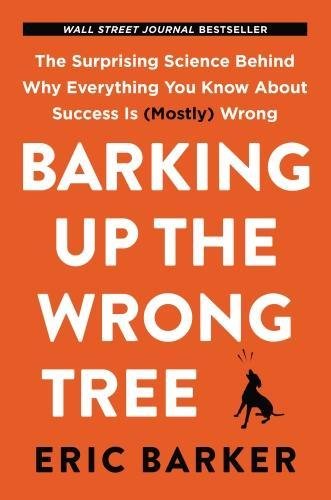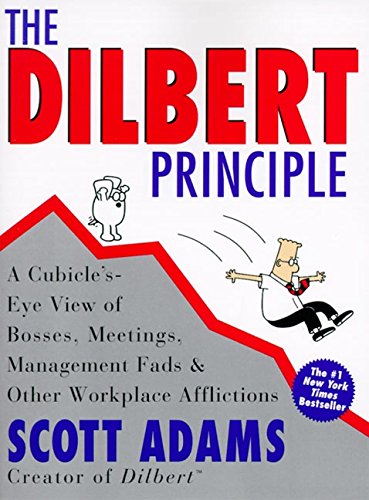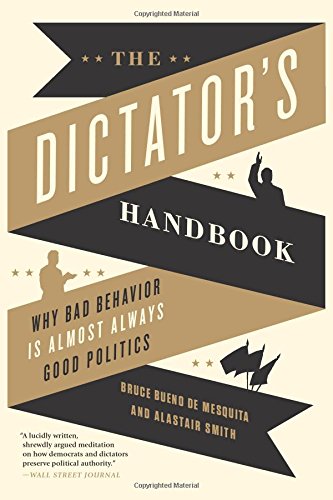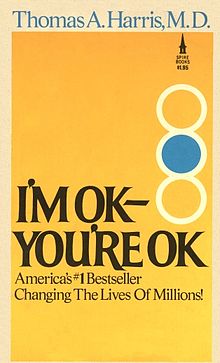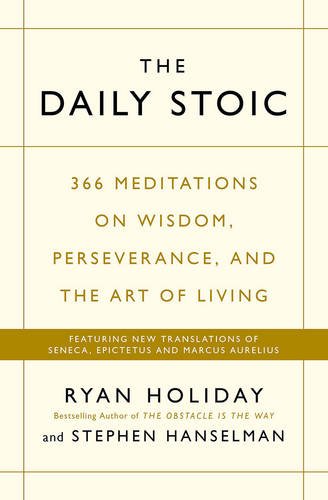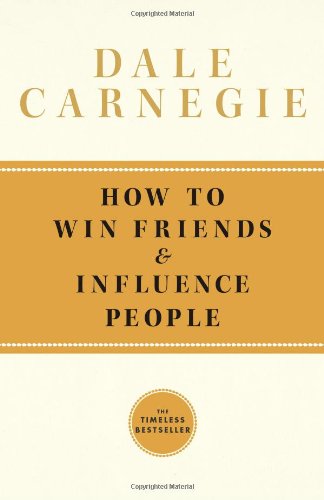Review: Many books on success out there summarize as “Look at these successful people! Study their habits and learn their ways, so you will be successful, too!”. Actually, I have reviewed a prime example here. Barking up the Wrong Tree presents a nice counterpoint and states that imitating the successful does not necessarily make successful. Instead we get a thorough analysis of perceived and real success factors, somewhat hidden beneath anecdotal evidence and academic namedropping. Did you know that good and bad traits come with the same package? The exact same factors that make people highly creative also deteriorate their moral compass and mental health. In fact, creativity is strongly associated with dishonesty and mental instability. The same factors that allow you to adapt and excel at school stop you from standing out at work. People with top grades from prestigious universities typically don’t change the world. At the top ranks of disruptive businesses you find people with kinked CVs, and a history of mediocre test results. Most schools reward conformity over genius, allowing people with top grades to easily rise to middle management, but rarely above. Barker speaks of “filtered” and “unfiltered” leaders, that either comfortably adapt into a…
Review First of all, I am a huge Dilbert fan, although I have never read the comics at work, especially not during that dozy hour right after lunch. Maybe you have heard of the Peter principle. People get promoted for being competent at their current position, so it is certain that everybody ends in a job they can no longer fill competently. The Dilbert principle is similar, but postulates an earlier reason for executive incompetence: incompetent people are rapidly transferred to positions where normal people do not have to see them every day and where they cannot touch anything dangerous – to management. Most management books are written by and for managers. There are good reasons for this, for example few non-managers have the required of free time and hubris to write a management book. But this also creates a bias which may be one reason why ridiculous company policies still thrive. The Dilbert Principle offers a different perspective, looking at management actions through the eyes of the office workers affected by them. Adams brings up diverse topics that determine (and sometimes plague) the daily grind in the cubicles, from consultants to employee motivation programmes. Each chapter gives an…
Review There is a difference between the way the world is and the way the world should be. And there are reasons for this gap. Poverty, corruption and inequality all over the world can be explained by the number of people the country’s leader needs to keep power – the essential selectorate. Leaders will do everything to please their essentials, while simultaneously keep the number of essentials as low as possible. This book is a deeply cynical manifest praising the virtues of selfish, near-sighted politics. The Dictator’s Handbook starts with a bold premise: there is no functional difference between successful dictators and successful democratic leaders. The optimal strategy for both is to install policies that benefit the people they depend on, and take for themselves what is left. Both types of leaders can exercise the same corruption and reckless focus on personal gain, with the only difference being the number of people they are accountable to, their essential coalition. This point spans the entire book, being repeated ad nauseam. Democrats have to please the fraction of all voters that is necessary to elect them to power. Depending on the number of parties, faction structure and voting system this can be…
Review Psychology can be hard to write about. Unlike many other topics I present here, it is almost a science, and thus deserves a lot more attention. Also, I don’t know a thing about psychology or psychoanalysis and evaluating such a book gives me a hard time. Freud postulated the threefold mind: the id (containing desires and urges), the ego (the conscious self) and the superego (the unconscious framework of rules and ethics). Transactional analysis is built on a similar but different idea, modeling the human psyche as three ego-states, of which only one is active at a time: The Parent is filled with values (or non-values) directly adapted as a very small child. This part contains mostly unconscious instructions and ideas from “Fire is dangerous” to “Non-white people are dangerous”. The Parent can cause problems, because it cannot evaluate those ideas and instructs a person to mimic their parents. This is the source of superstition, prejudice and a lot of stupidity, and also the reason why abused children often become abusive parents. The Child is also formed at a very young age, and is where emotions and spontaneity live. It is a recording of feelings as the Parent is…
Review I used to associate the word “stoic” with absence of emotions and stubbornness. Apparently, I was wrong. A bit. Apparently it is all about having principles and concentrating on the things of life one can actually change (the circle of influence). Everything outside of this circle is neither good nor bad, just facts and circumstances, and one can live happily by developing an indifferent attitude towards them. The daily stoic comes in the format of an almanac, offering a short quotation by a famous greek stoic and an explanatory part offering interpretation and context. The idea is to read and meditate on a stoic teaching of the day everyday, but don’t worry, if you buy the book after January 1st you don’t need to wait a whole year to start. Although each moth has a central topic and three months are grouped around one of the key stoic principles (perception, action, will), the daily witticisms do not need to be read in order. The short format (maximum one page, sometimes only a few lines) is also makes this the ideal bathroom lecture. So Marcus Aurelius, Epictetus and Seneca, the most quoted stoics of the book, came from very different places…
Review When a book is attributed as an influence by famous and infamous people, and continues to sell this well, we can assume, that there is something to it. But how can a book this ancient be relevant today? Carnegie tries to answer the age-old question of human interaction: how can I get the other person to do what I want? “How to make friends…” is written as a workbook with four major topics (basic techniques, how to make people like you, convincing people, be a leader), each one presented as a series of short lectures. At a glance, the lessons are simplistic, and always iterating on the central themes: make other people feel important, understood and respected. If you look closer, however, then you see that this is all you actually need. Find out what your counterpart wants and needs to feel good, then give it to them and they will reciprocate. People like to create their own narratives, and you will win them by giving them the opportunity to be the hero of the story. This is the fundamental trick to improve all your human interactions, that stays valid in the digital age, maybe even more. As communication…
